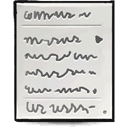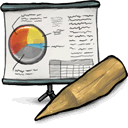
The Allied Armies (also known as the Friendly Armies Spartakiad) was an annual event grouping Warsaw Pact member countries. It proved to be a semi-professional event since majority of strongest participating players were in fact chess professional representing clubs under military tutelage. Only few of them were in fact soldiers serving in active duty. It was a common praxis in the countries of the Communist bloc to pay army-sponsored salaries to the chess professional grouped under auspices of military club.
The preview show of the Allied Armies championship occured in Warsaw, 1963 where five military teams competed in a friendly tournament to celebrate 20th anniversary of Polish People's Military.
| The Warsaw Pact |
| The Warsaw Pact was a military pact of Eastern European Communist states established in 1955 to counter the perceived threat from the NATO alliance (members: USSR, Poland, Bulgaria, Czechoslovakia, Hungary, Romania, East Germany, Albania [left in 1968], but not Yugoslavia!). It was purely a Soviet organization to create an illusion of the equality of satellite states. The foreign officers stationed in its headquarters in Moscow didn't even have access to the floors of the Central Command and their role was that of messengers transmitting Soviet orders to the Defence Ministries and Central Committees of their respective states. They didn't participate in any decision-making meetings. -- Chrystian Kretowicz |
|
Soon chess was listed as one of disciplines held along with the Military Spartakiads. (The Spartakiads were sports events that the Soviet Union attempted to oppose the Olympics. The name, derived from the name of the slave rebel leader, Spartacus, was supposed to symbolize proletarian internationalism.). The premier edition of the Allied Armies Championship took place in Moscow in 1964 and was an individual event. Vasiukov and Savon came in tied first. On the next year Savon won ahead of Vasiukov. Hort of Czechoslovakia and Zhelandinov were winners of 1966 edition. The fourth championship was held in Cuba and Hort won ahead of Vasiukov. In 1968 (from unknown reasons) is was decided that the event will be a team tournament. Czechoslovakia caused sensation defeating USSR. On the next years only three teams arrived to Warsaw and the Red Army team (the Soviet Union) won with comfortable margin. Third team contest was in Budapest in 1970. The Soviets won the challenge trophy yet another time. On the next year an individual tournament was organized in Tbilisi, won by the Latvian Zhuravlev. Ninth edition took place in 1974 in Leningrad. Eleventh and last Army championship was organized in Tbilisi, 1986 as a team tournament. The strong Red Army team won ahead of Hungary. Then the competition ceased to exist, simply because of the breakdown of the Communist Bloc in 1989.
The Allied Armies Team Championship was not a very big, yet interesting event. A number of strong players, including legendary players like Geller, Vasiukov or Jansa were taking part. Poland were doing exceptionally good throughout the competition winning three podium positions while they were not expected to do so.
 The Allied Armies (also known as the Friendly Armies Spartakiad) was an annual event grouping Warsaw Pact member countries. It proved to be a semi-professional event since majority of strongest participating players were in fact chess professional representing clubs under military tutelage. Only few of them were in fact soldiers serving in active duty. It was a common praxis in the countries of the Communist bloc to pay army-sponsored salaries to the chess professional grouped under auspices of military club.
The Allied Armies (also known as the Friendly Armies Spartakiad) was an annual event grouping Warsaw Pact member countries. It proved to be a semi-professional event since majority of strongest participating players were in fact chess professional representing clubs under military tutelage. Only few of them were in fact soldiers serving in active duty. It was a common praxis in the countries of the Communist bloc to pay army-sponsored salaries to the chess professional grouped under auspices of military club.


